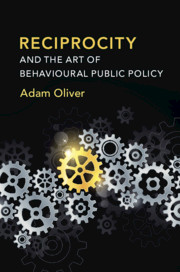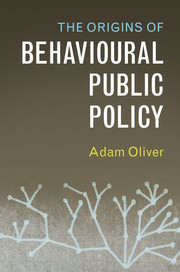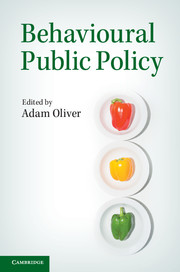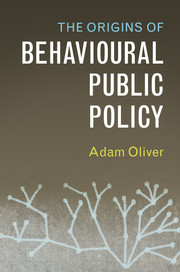Reciprocity and the Art of Behavioural Public Policy
What motivates human behaviour? Drawing on literatures from anthropology to zoology, Oliver examines how we are motivated to give and take, rather than give or take. This book reviews the evolution of reciprocity as a motivator of behaviour, in terms of its observation in non-human species, in very young humans, and in societies that we can reasonably expect are similar to those in which our distant ancestors lived. The behavioural economic and social psychology literature that aims to discern when and in what circumstances reciprocity is likely to be observed and sustained is also reviewed, followed by a discussion on whether reciprocity is relevant to both the economic and the social domains. The dark sides of reciprocity are considered, before turning again to the light, and how the potentially beneficial effects of reciprocity might best be realised. This culminates in the presentation of a new political economy of behavioural public policy, with reciprocity playing a prominent role.
- Provides a genuinely multidisciplinary analysis on the notion of reciprocity, drawing on philosophy, animal behaviouralism, psychology, political economy, behavioural economics, anthropology, sociology, public policy, and other areas
- The book is written in an accessible style
- Each chapter finishes with some 'food for thought' in the form of three questions, offering the reader guidance in how they may critically engage with the arguments presented in the chapters
Reviews & endorsements
‘In his exciting new book, Adam Oliver describes the part played by reciprocity in making us human, and how public policy should encourage and harvest it to enhance all our lives.' George Akerlof, 2001 Nobel Laureate in Economics
‘Adam Oliver is one of the leaders in the new field of behavioural public policy. In this important book, he marshals the evidence that reciprocity is a fundamental human motivation. He uses this idea as the starting point for a new way of thinking about public policy. His insight is that providers of public sector services and the taxpayers who fund these services are neither self-interested ‘knaves' nor altruistic ‘knights': they are reciprocators.' Robert Sugden, University of East Anglia
'A true tour de force - public policy will never be the same. I have been working to improve public policies for twenty-five years and this tome radically transformed my notions of rights, wrongs, and what can work.' John A. List, Kenneth C. Griffin Distinguished Service Professor in Economics, University of Chicago
'A brilliant, clarifying treatment of one of the largest issues in all of social science, and indeed human life. Why do people act fairly? What does that even mean? Oliver's book is essential reading - it's deep, and it's lively and fun to boot.' Cass R. Sunstein, Robert Walmsley University Professor, Harvard University, and co-author of Nudge
‘… this theoretically inclined treatise can profitably serve as a supplemental text in courses on political theory.’ D. L. Feldman, Choice
Product details
July 2019Adobe eBook Reader
9781108572002
0 pages
This ISBN is for an eBook version which is distributed on our behalf by a third party.
Table of Contents
- 1. Setting the scene
- 2. Animals and infants
- 3. A pinch of anthropology
- 4. A dash of behavioural economics
- 5. The domain of reciprocity
- 6. The dark side of reciprocity
- 7. Nurturing reciprocity in public policy
- 8. Reciprocity-informed policy design
- 9. Towards a political economy of behavioural public policy
- 10. Summing up.







